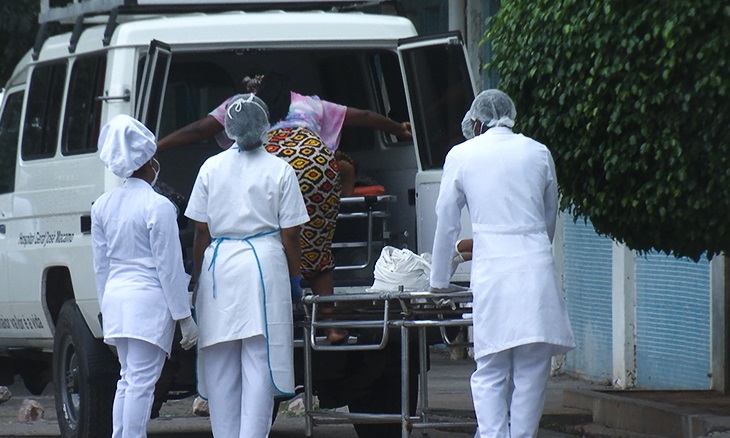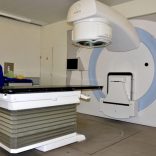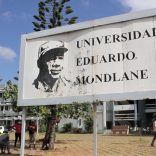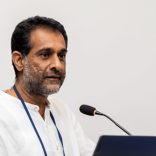Mozambique's only radiotherapy machine to be back in operation at Maputo Central Hospital within ...
Mozambique | TSU: Doctors strike, Day 2 – O País

- Patients in hospitals in Maputo were waiting more than six hours to be seen in emergency services on Tuesday because of the doctors’ strike. The Medical Association of Mozambique meanwhile condemned the replacement of striking doctors by military personnel and medical students, saying it will paralyse all services if the practice continues.
The first day of the doctors’ strike portrayed a degree of normality, albeit with some limitations, but little impact on patients in hospitals in the capital.
But on Tuesday, the doctors’ strike took on a different aspect, with some patients having to wait more than six hours to be seen.
“I arrived at the hospital around 07:00 a.m., but as of now (2:00 p.m.), still no-one has seen us, or offered any explanation. When a patient comes in, it takes a long time, and there is still no result,” complained Helena Eduardo, who was waiting for care at Mavalane General Hospital.
Patients there did not know why care was so long coming, but clinical director Maria Helena had an explanation: “We continue to provide the minimum services. We have a doctor in the emergency department and another in the observation room. Today, there is a slight delay, but the doctors are attending.” she said.
Doctors from Maputo Central Hospital (HCM) also continued to provide care, but in reduced numbers. The wait for medical assistance was long. “When you arrive, you will be well received, but then you will be shelved. In all the wards where I went, there are no doctors in attendance,” said António Guambe, who waited more than five hours to be attended to.
The management of the HCM did not give any justification for the delay. “This delay is not normal. We asked what was going on, but they said there was only one doctor. It is the only information given to us,” said Rosa Mucavel, a patient waiting on a bench at HCM.
The director of Emergency Services at the country’s largest health unit says that the delay has to do with the normal triage process, but the situation has worsened with the doctors’ strike.
“Associated with the demand we have due to the staff deficit, the one hour is stretched a little to seven or eight hours, but we are being flexible enough to attend to all patients. Now, we have a doctor in triage, one on the desk and another in the resuscitation room. This number is not enough to cover the demand, because we usually have five to six,” acknowledged Dino Lopes, director of emergency services at HCM.
The emergency services at Hospital Geral José Macamo were working and, contrary to what had been said, outpatient consultations were being carried out.
“What we are doing is to attend to patients according to the doctors and technicians we have available. There are some absences, but we have doctors in attendance – today is my day to attend to pregnant women,” explained clinical director Andrea Neves.
But sick women who are not pregnant are seemingly not a priority in the care provided by Hospital Geral José Macamo. “I’m sick. I have fibroids, but they always send me back,” one patient at José Macamo Hospital complained, on condition of anonymity. “The last time, they scheduled me for the 6th of December, but when I got to the hospital, they told me to come back next year. I’m in pain,” she says.
According to the Medical Association of Mozambique, more than 2,000 doctors across the country joined the strike.
To fill the gaps left by the striking doctors, hospitals are resorting to military personnel and medical students. “This may lead to a situation where there will be specific damage to patients, as these individuals are not accredited, and do not have the skills to be able to observe patients,” warned AMA secretary general Napoleão Viola. “We see situations where the wrong prescriptions are given to patients, and this is a danger to public health at a national level.”
In addition to endangering public health, this could lead to a general strike by doctors before the announced 21 days expires.
“If there are situations of violation of the principles of the strike, there is room for us to go to a total strike in which all services will be affected. The government, given that it is in a position where it thinks it has the capacity to continue providing services despite the strike, will find the best solutions it wants,” the AMA’s Viola says.
The use of military doctors and medical students to replace professionals on strike is taking place in general and provincial hospitals and health centres, especially in Maputo city.












Leave a Reply
Be the First to Comment!
You must be logged in to post a comment.
You must be logged in to post a comment.